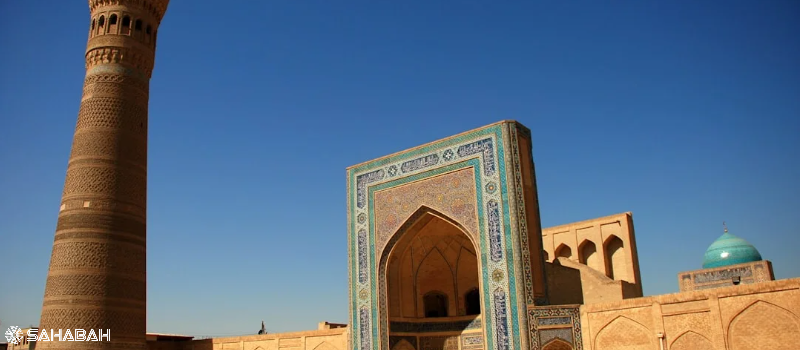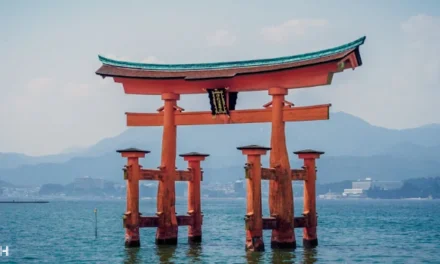The relationship between Uzbekistan and Israel has been a topic of interest in the geopolitical landscape, particularly in the context of the Israeli-Palestinian conflict. Uzbekistan, a predominantly Muslim nation in Central Asia, has maintained a delicate balance in its approach towards Israel, navigating the complexities of regional dynamics and its own domestic considerations.
This comprehensive blog post aims to shed light on Uzbekistan’s stance towards Israel, examining the historical context, diplomatic relations, economic and cultural ties, and the broader regional implications. By understanding Uzbekistan’s position, we can gain valuable insights into the intricate web of alliances and tensions that shape the Middle Eastern conflict.
Uzbekistan’s Diplomatic Relations with Israel
Establishment of Ties
Uzbekistan established diplomatic relations with Israel in 1992, shortly after gaining independence from the Soviet Union. This move was seen as a pragmatic decision, reflecting Uzbekistan’s desire to engage with the international community and foster economic and cultural cooperation.
Despite being a Muslim-majority nation, Uzbekistan recognized Israel’s right to exist and supported the two-state solution to the Israeli-Palestinian conflict. This stance was a departure from the more hardline positions taken by some other Muslim nations in the region.
Bilateral Agreements and Cooperation
Over the years, Uzbekistan and Israel have signed several bilateral agreements covering areas such as trade, investment, agriculture, and education. These agreements have facilitated economic and cultural exchanges between the two countries, fostering mutual understanding and cooperation.
One notable example is the cooperation in the field of agriculture, where Israel has shared its expertise in water management and advanced farming techniques with Uzbekistan, a country with significant agricultural potential.
Uzbekistan’s Balancing Act
Maintaining Good Relations with Arab/Muslim Nations
While engaging with Israel, Uzbekistan has also been careful to maintain good relations with Arab and Muslim nations, many of which have been critical of Israel’s policies towards the Palestinians. This balancing act reflects Uzbekistan’s desire to avoid alienating its Muslim-majority population and to preserve its standing in the broader Islamic world.
Uzbekistan has consistently called for a peaceful resolution to the Israeli-Palestinian conflict and has supported the establishment of an independent Palestinian state. However, it has also refrained from taking overtly pro-Palestinian or anti-Israeli positions, opting for a more neutral and pragmatic approach.
Promoting Dialogue and Peace
Uzbekistan has positioned itself as a potential mediator in the Middle Eastern conflict, offering its support for dialogue and peace initiatives. In 2018, Uzbekistan hosted a conference on the Israeli-Palestinian conflict, bringing together representatives from various countries and organizations to discuss potential solutions.
This proactive stance reflects Uzbekistan’s recognition of the importance of regional stability and its desire to play a constructive role in resolving one of the most intractable conflicts of our time.
Economic and Cultural Ties
Trade and Investment Relations
Despite the political complexities, Uzbekistan and Israel have maintained economic ties, with trade and investment flowing between the two countries. Israel has been a source of advanced technologies and expertise in areas such as agriculture, water management, and renewable energy, while Uzbekistan has offered opportunities for Israeli businesses to tap into its growing market.
The trade volume between the two countries, although modest, has been steadily increasing, reflecting the potential for further economic cooperation.
Cultural Exchanges and Tourism
Cultural exchanges and tourism have also played a role in fostering understanding between Uzbekistan and Israel. Uzbekistan, with its rich cultural heritage and historical sites, has attracted Israeli tourists, while Israeli artists and performers have visited Uzbekistan, contributing to the cross-cultural dialogue.
Additionally, Uzbekistan is home to a small but vibrant Jewish community, which has served as a bridge between the two nations, facilitating cultural exchanges and preserving the historical ties between the Uzbek and Jewish peoples.
Regional Dynamics and Geopolitical Considerations
Relations with Central Asian Nations
Uzbekistan’s stance towards Israel is also influenced by its relations with other Central Asian nations, some of which have taken more critical positions on the Israeli-Palestinian conflict. Countries like Kazakhstan and Kyrgyzstan have been more vocal in their support for Palestinian rights, while others like Turkmenistan and Tajikistan have maintained a more neutral stance.
Uzbekistan’s approach has been to strike a balance, avoiding alienating its regional neighbors while maintaining its pragmatic ties with Israel.
Influence of Russia and China
Uzbekistan’s foreign policy decisions are also shaped by its relations with major powers like Russia and China. Both countries have significant economic and political interests in Central Asia and have historically been more supportive of the Palestinian cause.
Uzbekistan has had to navigate these competing influences, ensuring that its ties with Israel do not jeopardize its relations with Russia and China, which are crucial for its economic and security interests.
Uzbekistan’s Position on the Israeli-Palestinian Conflict
While maintaining a balanced approach, Uzbekistan has consistently called for a peaceful resolution to the Israeli-Palestinian conflict based on the two-state solution. It has supported the establishment of an independent Palestinian state, with East Jerusalem as its capital, living side by side with Israel in peace and security.
However, Uzbekistan has also recognized Israel’s security concerns and has condemned acts of violence and terrorism against Israeli civilians. This nuanced position reflects Uzbekistan’s efforts to be seen as an impartial mediator, capable of understanding and addressing the concerns of both sides.
Key Takeaways
- Uzbekistan has maintained a pragmatic and balanced approach towards Israel, recognizing its right to exist while also supporting the establishment of an independent Palestinian state.
- Uzbekistan has sought to foster economic and cultural ties with Israel while preserving its relations with Arab and Muslim nations.
- Uzbekistan has positioned itself as a potential mediator in the Israeli-Palestinian conflict, promoting dialogue and peace initiatives.
- Uzbekistan’s stance is influenced by regional dynamics, its relations with major powers like Russia and China, and its domestic considerations as a Muslim-majority nation.
- Despite the complexities, Uzbekistan’s approach has been to strike a balance, avoiding alienating any side while pursuing its national interests and promoting regional stability.
FAQ: Does Uzbekistan Support Israel?
Uzbekistan has maintained diplomatic ties with Israel since 1992. While Uzbekistan has not taken a public stance on the Israel-Palestine conflict, it has engaged in cooperation with Israel in various fields.
What is the relationship between Uzbekistan and Israel?
Uzbekistan and Israel have established bilateral relations covering areas such as trade, technology, and defense. The two countries have also cooperated in cultural exchanges and educational programs.
Has Uzbekistan shown support for Palestine?
Uzbekistan has not officially declared a stance on the Israel-Palestine conflict. However, it has engaged in diplomatic relations with Palestine and participated in humanitarian assistance efforts in the region.
How does Uzbekistan’s stance on Palestine affect its relations with Israel?
While Uzbekistan maintains ties with both Israel and Palestine, its relations with one country do not necessarily affect its relations with the other. Uzbekistan aims to maintain neutral foreign relations in the Middle East.
Are there any recent developments in Uzbekistan’s relations with Israel or Palestine?
As of October 7, 2023, there have been no significant changes reported in Uzbekistan’s diplomatic engagements with Israel or Palestine. The country continues to uphold its diplomatic ties with both nations.
How do Central Asian countries like Uzbekistan view the Israel-Palestine conflict?
Central Asian countries, including Uzbekistan, often maintain a neutral stance on the Israel-Palestine conflict due to their focus on regional stability and economic development. They prioritize maintaining diplomatic relations with all parties involved.
Is Uzbekistan part of any international initiatives related to the Israel-Palestine conflict?
Uzbekistan is not directly involved in any international initiatives focused solely on the Israel-Palestine conflict. The country tends to prioritize its diplomatic efforts in other areas of foreign relations.
Does Uzbekistan have an embassy in Israel?
No, Uzbekistan does not currently have an embassy in Israel. However, the two countries maintain diplomatic relations through their respective embassies in other countries.
What is the size of the Jewish community in Uzbekistan?
The Jewish community in Uzbekistan is relatively small, estimated to be around 10,000 to 15,000 people. The majority of Uzbekistan’s Jewish population resides in the cities of Tashkent, Samarkand, and Bukhara, which have historically been home to vibrant Jewish communities.
How has Uzbekistan’s stance towards Israel evolved over time?
Uzbekistan’s stance towards Israel has remained relatively consistent since the establishment of diplomatic relations in 1992. However, there have been periods of closer cooperation and engagement, as well as times when tensions in the Middle East have strained the relationship.
Overall, Uzbekistan has maintained a pragmatic and balanced approach, seeking to foster economic and cultural ties while also considering its relations with Arab and Muslim nations.
What are the main areas of cooperation between Uzbekistan and Israel?
The main areas of cooperation between Uzbekistan and Israel include:
- Agriculture and water management
- Trade and investment
- Education and cultural exchanges
- Tourism
- Counterterrorism and security
Israel has shared its expertise in areas such as advanced farming techniques and water conservation, while Uzbekistan has offered opportunities for Israeli businesses to tap into its growing market.
How does Uzbekistan’s position on Israel differ from other Central Asian nations?
Uzbekistan’s position on Israel differs from some of its Central Asian neighbors. While countries like Kazakhstan and Kyrgyzstan have been more vocal in their support for Palestinian rights, Uzbekistan has maintained a more neutral and balanced stance.
Turkmenistan and Tajikistan have also adopted a relatively neutral approach, but Uzbekistan’s position is unique in its active pursuit of economic and cultural ties with Israel while also supporting the establishment of an independent Palestinian state.
Conclusion
Uzbekistan’s approach towards Israel is a delicate balancing act, shaped by historical context, regional dynamics, and domestic considerations. While maintaining pragmatic ties with Israel, Uzbekistan has also sought to preserve its relations with Arab and Muslim nations, positioning itself as a potential mediator in the Israeli-Palestinian conflict.
This nuanced stance reflects Uzbekistan’s recognition of the complexities involved and its desire to promote regional stability and peaceful resolution. As the Middle Eastern conflict continues to evolve, Uzbekistan’s role as a bridge between different perspectives could become increasingly important, offering a platform for dialogue and mutual understanding.
Ultimately, Uzbekistan’s support for Israel is multifaceted, encompassing economic and cultural cooperation while also advocating for a just and lasting solution to the Israeli-Palestinian conflict. By navigating these complexities with diplomacy and pragmatism, Uzbekistan aims to contribute to the pursuit of peace and stability in a region that has long been mired in conflict.





